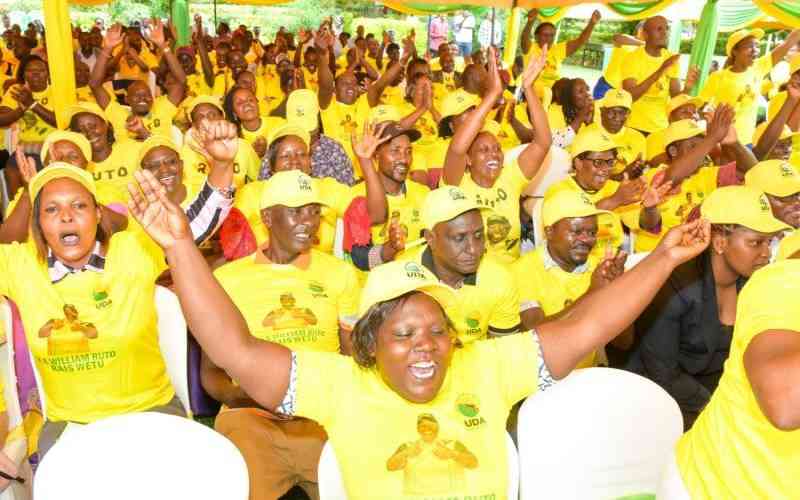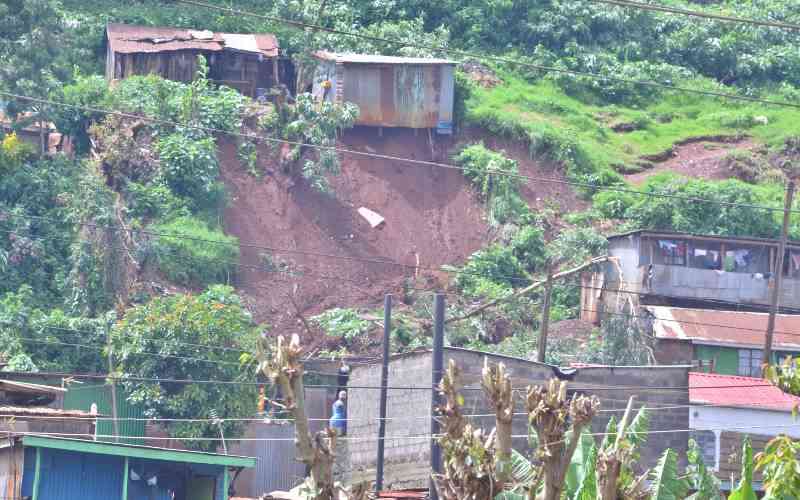The Treasury Cabinet secretary will spell out the budget
outlook for 2016-2017 financial years in April next year.
But going by what usually follows the disbursement of funds,
including devolving units; this will largely be a wasted effort.
The problem with Kenya is not bad politics or tribalism but
lack of rule of law.
What this means is that due to lack of enforcement of rule
of law, governors, CSs and other ruling elite in positions of power connive to
steal taxpayers money with little or no response from law enforcement agencies.
The rule of law has been methodically weakened, on purpose,
by the ruling elite so that they can enrich themselves using tax payers’ money
without suffering any consequences.
Along the value chain of rule of law, we have the Attorney
General, EACC, DPP, DCI , KRA and the Kenya Police. In between them lies the
reason why Kenya’s growth suffers a low 5.6 per cent when it could easily be
about 7-8 per cent; creating millions of jobs along the way.
Who is supposed to co-ordinate this rule of law flow without
taking us back to Moi era? This makes it possible to steal from Government
ministries, departments, agencies and counties with impunity.
It also makes it possible for private sector players to
steal from the people knowing full well that the criminal justice system in
Kenya is on auction.
Were all thieves to reform today, like in the Netherlands
where they are closing down prisons, then the system would starve to death and
mass resignations from State agencies would follow.
An emerging scandal is that Sh143 billion worth of public
land, buildings and vehicles inherited from defunct Local Authorities in 2013
have been stolen by governors.
THIEVING SOCIETY
When the Treasury CS stands in Parliament to read the
budget, it signals to the thieving elite that a fresh round of goodies is on
the way. Kenya’s budget is drawn to benefit criminals.
The budgetary process should be drawn with an intention of
raising household incomes to raise Kenya from bottomless pit of poverty.
Stay informed. Subscribe to our newsletter
This can be done, for example, by making an effort similar
to rural electrification, to provide arms-length water to all households within
five years.
The other way the budget can be used to raise household
incomes is to allocate money to build cheap 250,000 public housing units
annually. The Government can sell these houses at inflation levels to make them
affordable.
This idea of allowing loan sharks and predatory capitalists
to feed on and devour gullible, poor Kenyans must be stopped. The Government
must have a human face like that of Singapore for example, in providing public
housing.
Access to affordable housing is in our bill of rights and it
is unconstitutional to organize Government in such a way that this right is
sabotaged by predatory sharks operating with impunity.
The budget must also find ways of tackling cost of power so
that Kenya may benefit from mass industrialization. So far, the State energy
players have ignored President Uhuru Kenyatta’s directive that all independent
power producers’ (IPP) expensive contracts for producing thermal power be
cancelled.
Why is this impunity allowed to go unpunished? Unless Kenya
sorts this issue of power predators who kill our industries because of corrupt
contracts, then mass industrialization will never happen and unemployment will
remain at over 65 per cent indefinitely.
 The Standard Group Plc is a
multi-media organization with investments in media platforms spanning newspaper
print operations, television, radio broadcasting, digital and online services. The
Standard Group is recognized as a leading multi-media house in Kenya with a key
influence in matters of national and international interest.
The Standard Group Plc is a
multi-media organization with investments in media platforms spanning newspaper
print operations, television, radio broadcasting, digital and online services. The
Standard Group is recognized as a leading multi-media house in Kenya with a key
influence in matters of national and international interest.
 The Standard Group Plc is a
multi-media organization with investments in media platforms spanning newspaper
print operations, television, radio broadcasting, digital and online services. The
Standard Group is recognized as a leading multi-media house in Kenya with a key
influence in matters of national and international interest.
The Standard Group Plc is a
multi-media organization with investments in media platforms spanning newspaper
print operations, television, radio broadcasting, digital and online services. The
Standard Group is recognized as a leading multi-media house in Kenya with a key
influence in matters of national and international interest.







